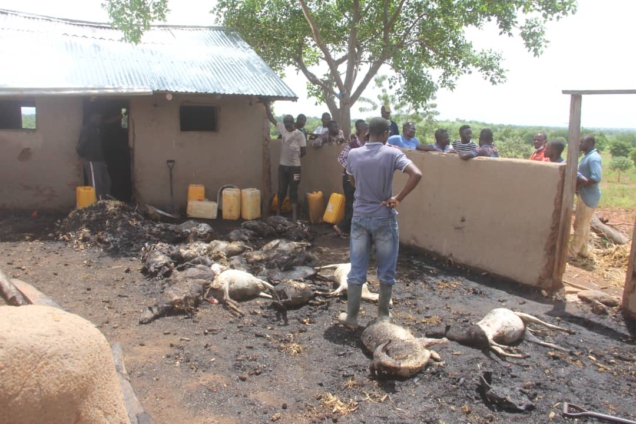Johnson & Johnson’s Covid-19 vaccine helps prevent severe disease among those infected with the delta variant, according to a trial involving almost 480,000 health workers in South Africa.
The study, known as Sisonke, provides the first large-scale evidence that the J&J vaccine works against this dominant variant, according to trial co-lead Glenda Gray. It’s probably more protective against delta than it was with the earlier beta strain, she said in a presentation Friday.
The single-dose shot was 71% effective against hospitalization and as much as 96% effective against death, she said. It also demonstrated durability of eight months.
“These results show there is no need for a booster yet,” said Gray, who is president of the South African Medical Research Council.
While the J&J vaccine is a key element to South Africa’s vaccination plan, the country temporarily paused its use in April after the U.S. decided to suspend the shot because of its link to rare blood clots. Other data have raised questions about how well the shot holds up against the highly contagious strain that has driven renewed outbreaks in countries including the U.S. and China.
One U.S. study released last month showed the J&J shot produced relatively low levels of antibodies against delta. J&J said that analysis, which hasn’t been published in a peer-reviewed journal, had examined only one aspect of protection and didn’t consider long-lasting responses among immune cells stimulated by the vaccine. The drugmaker’s researchers have said their own data indicated that the vaccine neutralizes the variant and that additional doses weren’t needed.
Africa’s Rollout
Earlier this year J&J agreed to supply as many as 400 million vaccines to the African Union through the end of 2022, delivering a boost to a continent trailing most of the world in the race to inoculate. The dose’s requirement for just a single shot is seen as beneficial for Africa, where vaccine distribution to more than 1 billion widely dispersed people is likely to present a challenge.
In the study, the vaccine was administered to the health workers at 120 sites in both urban and rural areas from Feb. 17 to May 17. Analysis of a third data set is expected in coming days.
There were two cases of the rare clotting disorder thrombocytopenia thrombosis syndrome among participants, with both making a complete recovery, Gray said.
Latest Stories
-
Multimedia’s Doreen Avio, Hannah Odame earn master’s degrees from UPSA
2 minutes -
ORAL is not a tool for witch-hunting – John Mahama
16 minutes -
Audit the state of Ghana’s health sector – Kwame Asiedu urges Mahama
33 minutes -
East Legon accident: Salifu Amoako’s son jailed 6 months
35 minutes -
Brenda Antwi Donkor – the unsung lady behind the most iconic TV productions
38 minutes -
MUSIGA mourns Naa Amanua of Wulomei fame
55 minutes -
Audit Agenda 111 lands and funds – Kwame Asiedu urges Mahama
1 hour -
President Akufo-Addo commissioned mere buildings, not hospitals – Kwame Sarpong Asiedu
1 hour -
David Ocloo joins Togolese side AS OTR Lomé as head coach
1 hour -
The evolution of Ghana’s film industry: From local beginnings to global showcase
1 hour -
Black Galaxies: Didi Dramani rallies support ahead of CHAN qualifier against Nigeria
1 hour -
Agenda 111 will not solve Ghana’s healthcare crisis – Kwame Sarpong Asiedu
2 hours -
“I never left the stage” – Fameye on London show mishap
2 hours -
I have a plan to win the league for Hearts Of Oak- Aboubakar Outtara
2 hours -
CIB Ghana celebrates induction of 110 Chartered Bankers, totaling 1,127 over five years
2 hours

